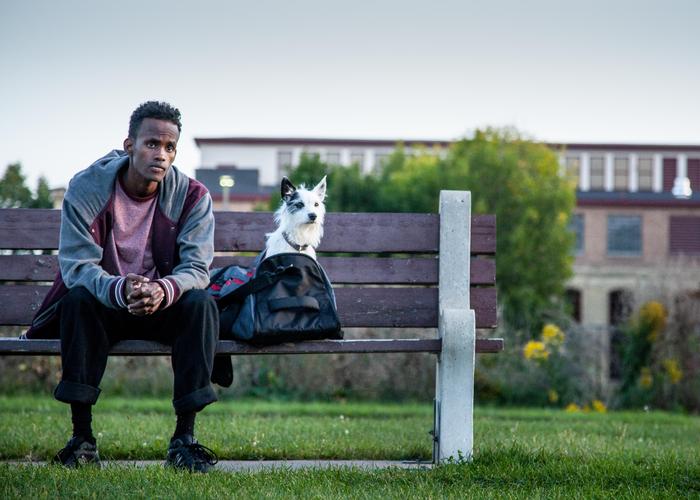SXSW Review: A Stray

Still from A Stray
What defines you? Is it the language you speak? The religion you practice? The culture that reared you? These are the questions central to Musa Syeed’s excellent new film, A Stray, which had its world premiere here at SXSW.
The film follows Adan (Barkhad Abdirahman), a down on his luck Somali refugee trying to cut his own path in Minneapolis. Adan is pulled in every direction by the characters that occupy his life. There are his friends, forever smoking hookah and shooting the shit together in government housing. (It’s clear from the film’s opening scene: these are Adan’s people, yet he doesn’t fit in with them at all.) There’s the imam who takes him in but can only do so much to set him on the right path. There’s the restaurant owner who gives Adan a job, but has trouble trusting him. There’s the FBI agent trying to turn him into an informant. (Minneapolis’ Somali population is, in the real world, under heavy surveillance.)
And then there’s Laila, a stray dog he finds while running an errand for work. Because of his Muslim faith, Adan is uncomfortable taking the animal in, but when no one else will, the two become companions. The dog makes him a pariah with the other Muslims in his life, yet every time he tries to set Laila free, she comes back to him. And so, even if it means he doesn’t have a home anymore, Adan is stuck with the dog.
A Stray brings to light a world that doesn’t get a lot of time on screen, at least in the films this reviewer watches. It’s a coming of age film but on a scale much bigger than what that term generally means. Adan experiences the growing pains not only of adulthood, but of religiosity and national identity. He wants to be a good Muslim, and yet can’t cast Laila aside. When he’s hungry and living on the streets, he takes the food that’s given to him, but when he finds out it’s pork, it is a huge offense. He’d rather go without than question his faith on that level, even if he’s already questioning it on other levels.
Syeed’s direction is excellent. The streets of Minneapolis look gorgeous, photographed with a muted realism that is sometimes broken by dream-like soliloquies. Throughout, as he wanders the city, Adan is praying, but to whom is sometimes unclear. He could be asking God for help, or he could be asking the audience to see him, hear him. The onus is on us, then, to do so.
This is not the first film about a man living on the streets with an animal while trying to put his life together. (Vittoria De Sica’s Umberto D comes to mind, and it’s strange that, in film history, this is practically a genre.) Yet A Stray proves that there are millions more stories that need to be on the screen. We live in divisive times when people would deny someone like Adan a home in America. Understanding and empathy can begin with seeing a great story play out on screen. I don’t know anyone like Adan. But I do now, thanks to Musa Syeed’s film. I hope more will see it.